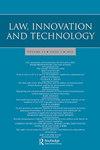Teledildonics and rape by deception
Q1 Social Sciences
引用次数: 10
Abstract
ABSTRACT It is now possible to buy sex toys that connect to the user’s phone or computer via Bluetooth and can be controlled remotely. The use of such Internet-enabled haptic sex toys involves an ineliminable risk of being deceived about particular features of one’s sexual partner and/or about which person one was having ‘sex’ with. Where this occurs, it is possible that the user would become the victim of rape-by-deception. We argue that determining whether a person using an Internet-enabled haptic sex toy has been raped or not when they are involved in a sexual encounter with someone – or something – other than that they intended requires us to confront difficult questions about the definition and significance of sexual intercourse and about the nature and harm of rape. Our discussion of these topics suggests that the use of such devices is more ethically fraught than has been appreciated to date.恶作剧和欺骗强奸
摘要:现在可以购买通过蓝牙连接到用户手机或电脑并可以远程控制的情趣用品。使用这种基于互联网的触觉性玩具存在被欺骗性伴侣的特定特征和/或与谁发生“性关系”的无犯罪风险。在这种情况下,用户有可能成为欺骗强奸的受害者。我们认为,确定一个使用互联网触觉性玩具的人在与某人或某事发生性接触时是否被强奸,这需要我们面对关于性交的定义和意义以及强奸的性质和危害的难题。我们对这些主题的讨论表明,使用这种设备在道德上比迄今为止所理解的更令人担忧。
本文章由计算机程序翻译,如有差异,请以英文原文为准。
求助全文
约1分钟内获得全文
求助全文
来源期刊

Law, Innovation and Technology
Social Sciences-Law
CiteScore
4.50
自引率
0.00%
发文量
18
期刊介绍:
Stem cell research, cloning, GMOs ... How do regulations affect such emerging technologies? What impact do new technologies have on law? And can we rely on technology itself as a regulatory tool? The meeting of law and technology is rapidly becoming an increasingly significant (and controversial) topic. Law, Innovation and Technology is, however, the only journal to engage fully with it, setting an innovative and distinctive agenda for lawyers, ethicists and policy makers. Spanning ICTs, biotechnologies, nanotechnologies, neurotechnologies, robotics and AI, it offers a unique forum for the highest level of reflection on this essential area.
 求助内容:
求助内容: 应助结果提醒方式:
应助结果提醒方式:


